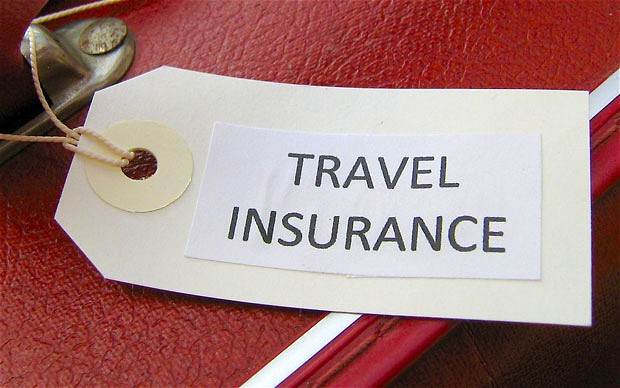Do You Need Travel Insurance?
Every time you buy a plane ticket, the airline or travel agency asks if you want to add on travel insurance. Is this really worth it? What are you actually buying?
Travel insurance sounds like one of those types of insurance you don’t need, just like extended warranties are generally not worth it.
In actuality, though, in some cases, shelling out for travel insurance is a smart move.
Let’s take a look at your options and when travel insurance makes sense or doesn’t.
Do I Really Need to Buy Travel Insurance?
You can get travel insurance from a number of sources: The airline or cruise carrier directly, an independent travel insurance agency, and, sometimes, your credit card.
In general, travel insurance costs around 5 percent of your total trip.
For a $4,300 trip, for example, you will pay $158 for standard travel insurance with Allianz.
The insurance coverage varies by who you get it from as well as the individual policy you purchase.
Overall, though, travel insurance is meant to protect you against unforeseen travel misfortunes, like your flight getting cancelled due to severe weather or your baggage getting lost or stolen.
Trip cancellation and trip interruption insurance:
This reimburses you non-refundable travel costs if your trip is cancelled or seriously delayed due to a natural disaster, illness, or the carrier goes out of business.
The independent and carrier-provided insurance policies offer protection up to the amount you purchased, since this is the main reason people buy travel insurance in the first place.
Coverage is usually around $1,500 per person for cancellation and $300-500 a day for trip interruption.
Only 15 percent of credit cards offer trip cancellation coverage, according to Creditcards.com, but if you own one of these cards, you might be able to skip buying travel insurance altogether, and the annual fee charged on these types of cards may be well worth it for frequent travelers.
Chase Sapphire, for example, reimburses up to $5,000 $10,000 for trip cancellation, as long as the reason you or the carrier cancel the trip is one of the covered causes (e.g., severe weather, military orders, the carrier goes out of business, or you get too sick to fly—make sure you get a doctor’s note to support your claim).
It is also one of the few cards to reimburse you (up to $500) for reasonable expenses if your trip is delayed due to things like plane failure, labor strikes, or bad weather.
Check out this short list of credit cards with travel insurance benefits or read the fine print of your card’s policy to see if you’re covered.
Baggage and personal items coverage:
If someone steals something from your bag or your luggage is lost or delayed, travel insurance will pay you for your trouble, usually up to about $500 per lost baggage and $100-$300 per baggage delay. Missing and damaged bags happen a lot more often than you might think!
So Is It Worth It?
As with other insurance policies, buying travel insurance (or not buying it) is a gamble.
You don’t want to ever regret not buying the insurance, but you also don’t want to pay for something you don’t need and, looking at the list above, you might already be covered for some of these items elsewhere (e.g., you already have life insurance that covers death or dismemberment or health insurance that covers emergencies abroad).
Two rules of thumb:
Travel insurance is worth it when you’re traveling abroad and your health insurance doesn’t cover emergencies outside of your country or when a large portion of your trip is non-refundable (e.g., you’re buying a pricey vacation package and losing out on the cost of your trip would seriously set you back).
For everything else in between, consider how much a financial disaster it would be if something bad happened on your trip or you had to miss it.
Here’s a three-step process to decide, in case you’re still not sure:
Step One:
Decide how much is at stake if something goes amiss on your trip. You probably don’t need travel insurance if you got one of those cheap $99 last-minute flights.
Travel insurance would cover lost bags and delays, but the price wouldn’t be worth it to most people.
If you’re on an expensive trip, though, or there are more chances something bad will happen (you’re traveling during cold season, for example, or to the Caribbean during hurricane season), you’ll probably want to insure it.
Step Two:
Figure out if your credit card offers travel insurance.
If it does, read the fine print to see if it would cover your insurance needs. Most cards only offer assistance if you’re in an emergency while traveling or other protections that are pretty useless, while you might want reimbursement in case you need to cancel your $2,500 plane tickets before your flight.
Step Three:
Find out how much travel insurance costs for your trip. Use comparison site InsureMyTrip to compare independent agency policies available to you.
While the insurance offered by airlines and cruise lines are often comparable (and often provided by the same third-party insurers), it’s hard to read the fine print of what your coverage will be when you’ve got tickets in your checkout cart.
Usually the independent insurers are cheaper, too (although not always, as this comparison on The Points Guy reveals).
Finally, remember that you have to get insurance before your trip starts; it won’t protect you if you get the insurance after an accident happens or your trip is cancelled (that’s like trying to get home insurance after your house has already burned down).

